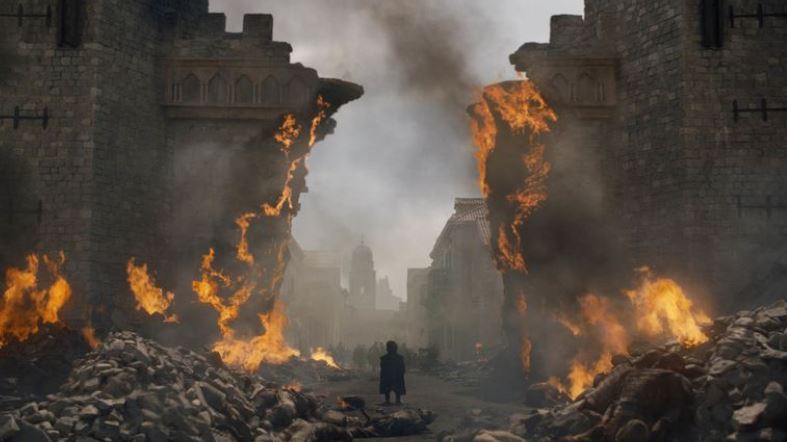
The online laments that followed the second to last Game of Thrones episode, “The Bells,” is instructive, I think, for it makes evident that many of us support violence when it is in service of our interests.
For, despite the gasps that greeted Daenerys not heeding the bells, signalling the city’s surrender (oops: spoilers), the show had made plain all along that she (like pretty much everyone else in the series) had no trouble inflicting gruesome, deadly violence on those with whom she disagreed — it’s just that many of her victims came off to us viewers as obvious bad guys and thus, what?, deserving of it?
Remember the slaver, Nakloz (season 3, ep. 4)…?
But that was in the service of the good, right? Freeing the Unsullied, to become her army, freely choosing to kill for her cause.
So it’s worth mulling over just why that penultimate episode was such a shocker to some people; for our reaction to it may tell us a lot about how we minimize and normalize certain sorts of violence, so long as it helps us to achieve our ends. Come to think of it, my guess is that we wouldn’t even call it violence in such cases — punishment or “just deserts” is likely how we’d portray it, going so far as to dismiss any comparison to what happened to all those people in King’s Landing.

But in a universe where morality is a little more ambiguous — as it likely is in our own, where there are wars that we support and wars that we criticize — it’s not difficult to imagine a dragon Queen concluding that the whole city was complicit in what befell her family.
So, if it surprised you then it might just tell you something about all the burning that you may have missed despite seeing it happen.
